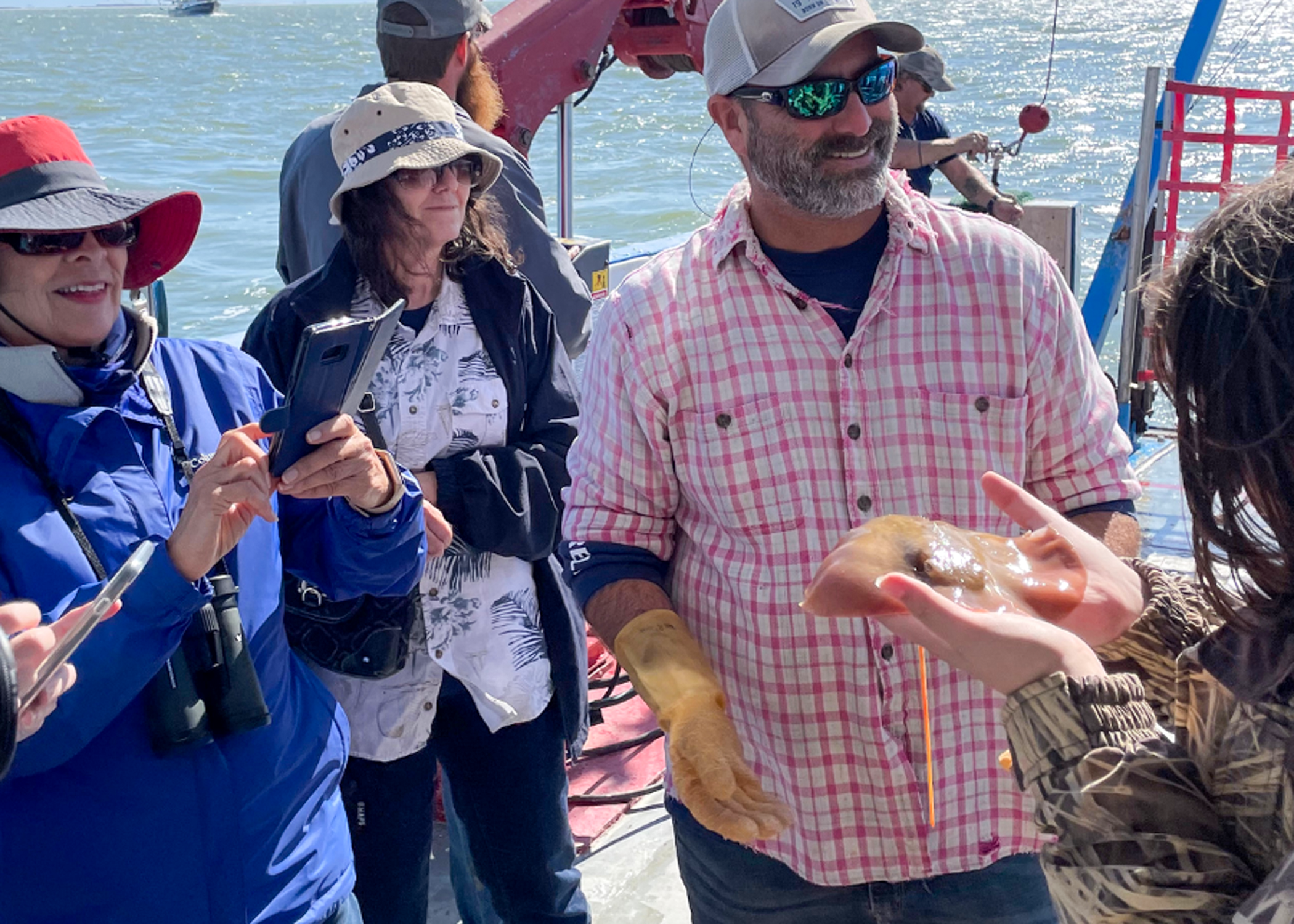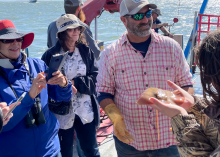Information Possibly Outdated
The information presented on this page was originally released on November 22, 2022. It may not be outdated, but please search our site for more current information. If you plan to quote or reference this information in a publication, please check with the Extension specialist or author before proceeding.
Stakeholder involvement helps define research needs
BILOXI, Miss. -- The Southeast has some of the most commercially and recreationally valuable fisheries in the United States. However, anglers’ observations of fish populations don’t always match the results of official stock assessments for important reef fishes.
Fishers (also referred to here as “stakeholders”) have a wealth of knowledge about local ecosystems from extensive on-the-water experience. The disconnect between anglers and researchers results in diminished trust in fisheries management among stakeholders. It also causes fisheries managers to miss opportunities to incorporate stakeholder knowledge into management decisions.
To address this issue, Congress allocated funds to estimate the abundance of certain reef fish species in the Southeast. These projects began in 2017 and include the “Great Red Snapper Count” and the more recent “Greater Amberjack Count.”
Fisheries management is a complex, multistep process. Furthermore, it often takes years for fishing regulation changes to go into effect after incorporating new information. These factors fuel the disconnect between stakeholders and managers.
That is why the National Sea Grant Office funded a team of Sea Grant fisheries Extension specialists, university scientists and fisheries managers from the Southeast to conduct Extension work centered around reef fish fisheries. Led by Marcus Drymon of MSU Extension, our team’s goal is to improve the flow of information between researchers, management and stakeholders by including stakeholders in this process.
First, we must identify the most pressing research needs in the region. We are designing and distributing annual surveys to reef fishery stakeholders to understand attitudes, perceptions and beliefs regarding the management of important reef fish species, as well as how these aspects change over time.
We are holding meetings with our Reef Fish Advisory Panel to dig deeper into survey results and identify future survey topics and research needs. The first of these meetings was Oct. 17, 2022. Participants included fishermen, fisheries management representatives and the project team. It was a great success, and we look forward to future meetings with our advisory panel.
Finally, we will create educational materials and training opportunities to share information about reef fish fisheries with stakeholders. Team members will customize their materials and training opportunities to address specific needs of their local reef fish stakeholders.
For example, Texas Sea Grant specialists are offering dockside training opportunities focused on proper handling and release of reef fish. They also created an Angler Ethics and Etiquette Brochure and a comprehensive fishing guide designed to improve fishing practices and promote environmental stewardship.
Louisiana Sea Grant specialists will be offering reef fishery workshops, and Mississippi-Alabama Sea Grant specialists are hosting their second annual FISHES (Fishermen Invested in Science, Healthy Ecosystems and Sustainability) course, which is designed to extend information about fisheries management, fisheries science and sustainability to fish enthusiasts.
Florida Sea Grant specialists expanded upon their Florida Friendly Fishing Guide Certification and launched another program for recreational fishermen called the Florida Friendly Angler Certification.
In the U.S. South Atlantic, Sea Grant specialists are planning and implementing media tours to highlight reef fish science and best practices for reef fishing.
Sound overwhelming? We have created a website explaining these efforts, so anyone can stay informed on what we’re doing -- along with stakeholders and managers -- to address the most pressing needs in the Southeastern reef fish fishery today. For more information, visit https://gulfseagrant.org/reef-fish-extension/.

Editor’s Note: Extension Outdoors is a column authored by several different experts in the Mississippi State University Extension Service.




